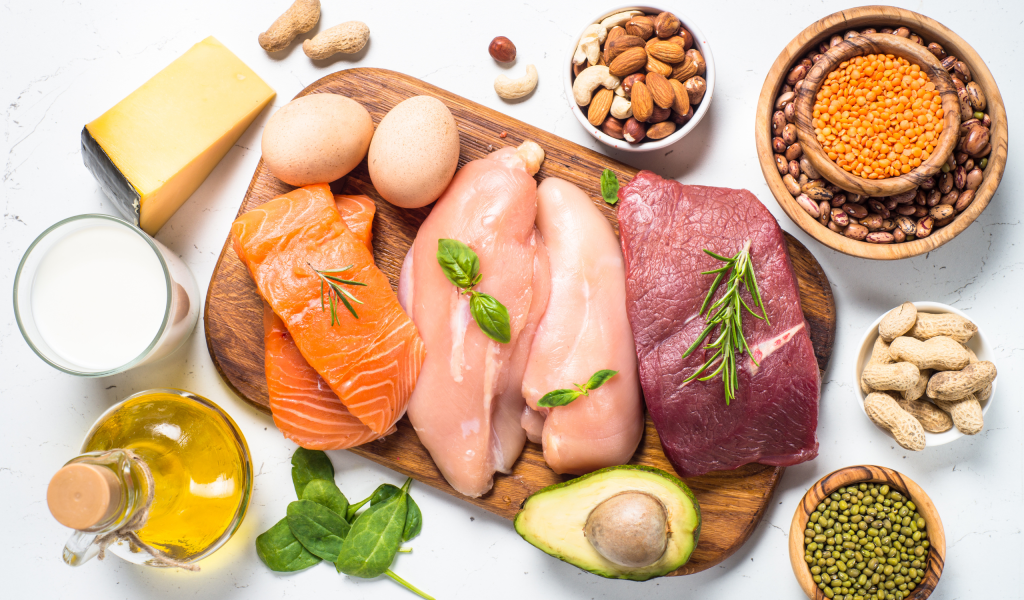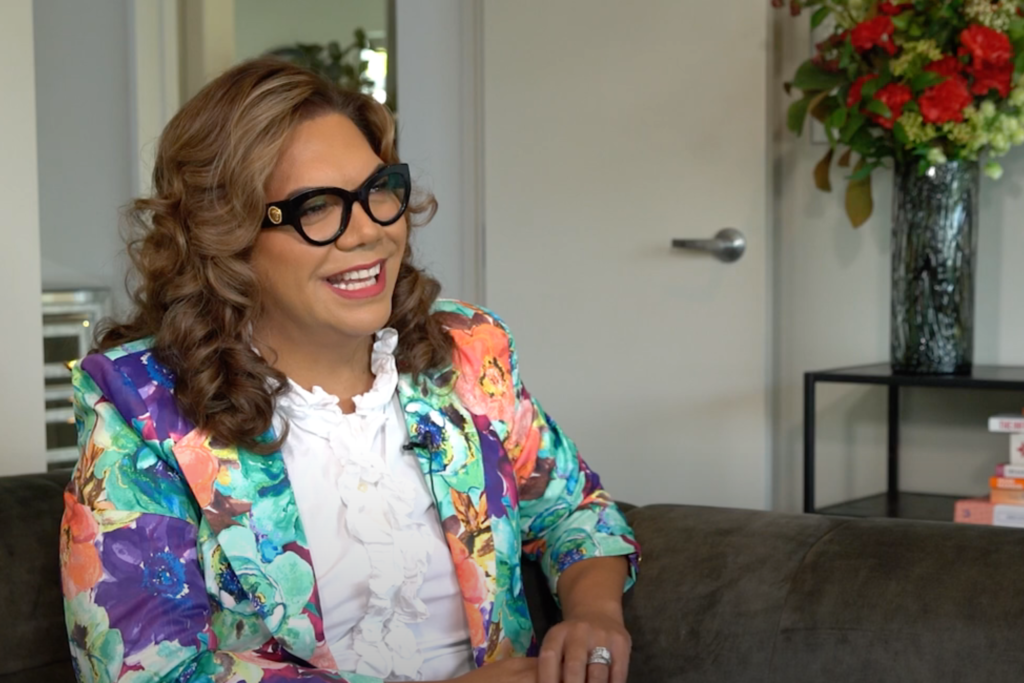Written by Dietician Sarah
Sarah delves into the need for protein, what it is, and how we can best get it during the day!
Protein is always a hot topic, especially around exercise, and those wanting to lose weight, and usually always pops up when a fad diet is mentioned.
But how much protein do we actually need and is it difficult to achieve?
Protein is essential in our diet (much like fats and carbohydrates) and they provide good sources of iron, calcium, B vitamins and essential amino acids. Amino acids are the building blocks of protein and some can be made by our bodies and others are essential in our diets.
Protein helps to build and repair muscles, tissues and cells in our body. It also helps to strengthen our immune systems so it is fairly important to have each day. Protein foods help to make you feel full after eating so it is a good idea to include a protein source in each of your meals.
Protein-rich foods can be found in both animal and plant sources. It includes dairy products (milk, cheese, and yoghurt), eggs, lean meats, chicken, fish, pulses (lentils, chickpeas, beans, and peas), soy protein (soy milk, tofu, and soybeans), nuts, seeds and some grains such as quinoa, oats and barley.
All of our animal foods and soy protein and quinoa contain all of the essential amino acids. Other plant-based protein sources lack one (or more) of these essential amino acids and that is why if you follow a vegan diet it is very important to include plenty of diversity in your diet to ensure you get everything you need.
But how much do we need in our diets?
Generally speaking, an average female needs approx. 0.75g of protein per kilogram of body weight per day. For example, a 70kg woman would need 52g of protein per day. Males require slightly higher at about 0.85g/kg.
There are some groups of people who require more protein and these include athletes, those who are very active, pregnant and breastfeeding women, growing teenagers, the elderly and those with particular illnesses (cancer), injuries (burns or trauma) or after major surgeries.
There’s a lot of hype around protein powders and protein bars in our diet… but do you really need them?
The answer is… no!
Most of us generally have no problem achieving enough protein in our day and the majority of us following a Western-style diet usually exceed our protein requirements on a day-to-day basis. There’s no danger to eating more than your fair share of protein (unless you have kidney or liver problems) but eating excessive amounts of protein may mean that you’re not eating enough other important foods such as vegetables, fruit and whole grains.
A vegetarian, vegan or someone with particular dietary requirements for intolerance/ allergy reasons may struggle to meet their protein requirements and this is where a protein supplement could be beneficial.
So just how much protein are in particular foods?
Check out the foods below and their protein content to see just how achievable this is in a day!
Now I’m not one for counting your calories or grams of protein in a day so this is more information to help grasp the concept that in a fairly standard diet most of us (without additional nutritional requirements) can achieve our protein requirements. Values obtained from The Concise New Zealand Food Composition Tables (13th Edition 2018).
Food: grams of protein:
100g white fish, baked (e.g. snapper, hoki, terakihi) 22-25g
100g tuna, canned in spring water 26.6g
100g premium beef, cooked 24.2g
1 grilled chicken breast (107g) 33.4g
1 grilled lean beef fillet steak (135g) 38.2g
100g grilled pork fillet 30.2g
1 boiled egg (size 7) 7.1g
30g Edam cheese 8g
1 cup trim milk (cows) 10.2g
100g yoghurt (plain/ fruit/ unsweetened) 4-5g
100g soy yoghurt 5g
1 cup baked beans 13.4g
1 cup black beans 16.2g
1 cup red kidney beans 14.2g
1 cup chick peas 15.4g
1 cup lentils 15.3g
100g tofu 8.1g
2x slices wheat meal/ mixed grain bread 7.8g
1 cup of pearl barley, boiled 4.4g
1 cup of couscous, cooked 9.6g
½ cup of rolled oats, raw 7.95g
1 cup of quinoa, cooked 6.4g
10 almonds 2.2g
1 tablespoon chia seeds 2.4g
1 tablespoon pumpkin seeds 3.3g
What about the dairy-free people?
I also thought I’d touch on the protein content of dairy-free alternatives because there are a lot of people living with dairy intolerances or allergies and plant-based living is very topical at present.
100ml of almond milk provides 0.6g of protein
100ml of coconut milk provides 0.5g of protein
100ml of rice milk provides 0.4g of protein
100ml oat milk provides 0.7g of protein
100ml soy milk provides 2.8g of protein
100ml trim cow’s milk provides 3.9g of protein
There is nothing wrong with these dairy-free alternatives but be mindful of the fact that they will not provide as much protein as their dairy containing counterparts. If you like the taste, soy milk has the highest protein content out of the dairy-free alternatives. If you choose one of the other options, know that it’s not going a long way to meet your protein requirements so you’ll have to ensure you choose plenty of other high-protein foods to get the most out of your diet.
To wrap it all together
So, the bottom line is to try not to get sucked into the hype of particular foods, protein supplements and the like because at the end of the day, most of us, we don’t need them.
Eating a wide range of different foods in your diet (whatever your dietary preference is) will be perfectly suitable for you!
Sarah xx













